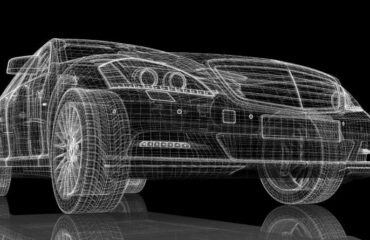Simply Saving Lives
Older Drivers: Are You Prepared?
The Baby Boomers are yet again changing business as usual. There are now both low tech and high tech programs and devices that help older drivers with health issues who are involved in a vehicle crash or suffering a medical emergency.
Yellow Dot
Responding to an aging population with medical concerns, nine states[i] have adopted the Yellow Dot program. Connecticut started the program in 2002 that allows a driver to share health information with emergency personnel. The concept is simple. A person enrolls in the program, is given a small folder in which to place a photograph and all relevant medical information, and a small yellow dot to place in the rear window of the car . The “file of life” contains information about their medical conditions, all drugs taken regularly and other health data that will help first responders do a better job.
This allows communication when the driver is unable to respond after a crash or because of illness. The folder is their voice in case they cannot speak for themselves. The so-called “golden hour’ is the first 60 minutes after a serious crash that can make the difference between life and death for the critically injured.
The program has support from both older drivers or those with serious health issues and first responders who are helped by the information. It is also lauded by the AAA Foundation for Traffic Safety and the Governors Highway Safety Association. This is the simple kind of program that works and saves lives.
Wellness App
Ford Motor Co. and WellDoc® are collaborating on a health application for use inside a vehicle. Targeting people with chronic diseases such as asthma and diabetes, the application would relay voice-based data to the health care company servers. For instance, a glucose reader may sound an alert for a person with diabetes whose blood sugar levels need attention. They even anticipate that the app will have the ability to not only find a restaurant nearby but help the driver make healthy menu choices.
An allergy scanner for people with asthma would trigger the car to close windows and circulate fresh air in the vehicle when passing through high pollen areas that could cause an asthma attack.
 Why would such an application be needed? WellDoc® says, “According to the U.S. Department of Transportation, Americans spend more than 500 million “commuter hours” per week in their automobiles, making it difficult to follow a daily health routine that is critical to their well-being.”
Why would such an application be needed? WellDoc® says, “According to the U.S. Department of Transportation, Americans spend more than 500 million “commuter hours” per week in their automobiles, making it difficult to follow a daily health routine that is critical to their well-being.”
Medical Information Thumb Drives
There are a variety of portable devices to record personal health information using USB-flash disc technology[ii]. The thumb drive contains a person’s medical information, x-rays, MRIs, EKGs and other diagnostic tests. It provides emergency contact information and designates whether the person is an organ donor or has a Do Not Resuscitate (DNR) order. It can be kept on a keychain and is especially useful for those who travel alone or internationally. A copy can be given to a caregiver, family member or those holding a durable power of attorney re: health care. It can be used by emergency medical personnel everywhere whether or not they have internet access.
For Children
Nothing could be worse than having a child in a car during a crash and not being able to communicate about them. One suggestion in addition to a “life file” in the glove box for each child, is attaching a large luggage tag with relevant emergency contact information to their car seat. That way if the adult is unable to speak, emergency personnel will know the identification of the child, contact information and their doctor as well as any special medical conditions they may have.
This article was previously published in Highway to Justice, a publication of the American Bar Association and the NHTSA.
What do you think?
Have you used any of the above items? Did they help? Let us know in the comments below.
[i] Connecticut, Kansas, Illinois, Iowa, Minnesota, Massachusetts, Virginia, Alabama and New York has adopted the Yellow Dot program. Georgia and some other states are considering it.
[iii] Type “USB medical information” or “medical thumb drive” into your search engine to contact a variety of vendors.
Get more articles like this
in your inbox
Subscribe to our mailing list and get the latest information and updates to your email inbox.
Thank you for subscribing.
Something went wrong.









